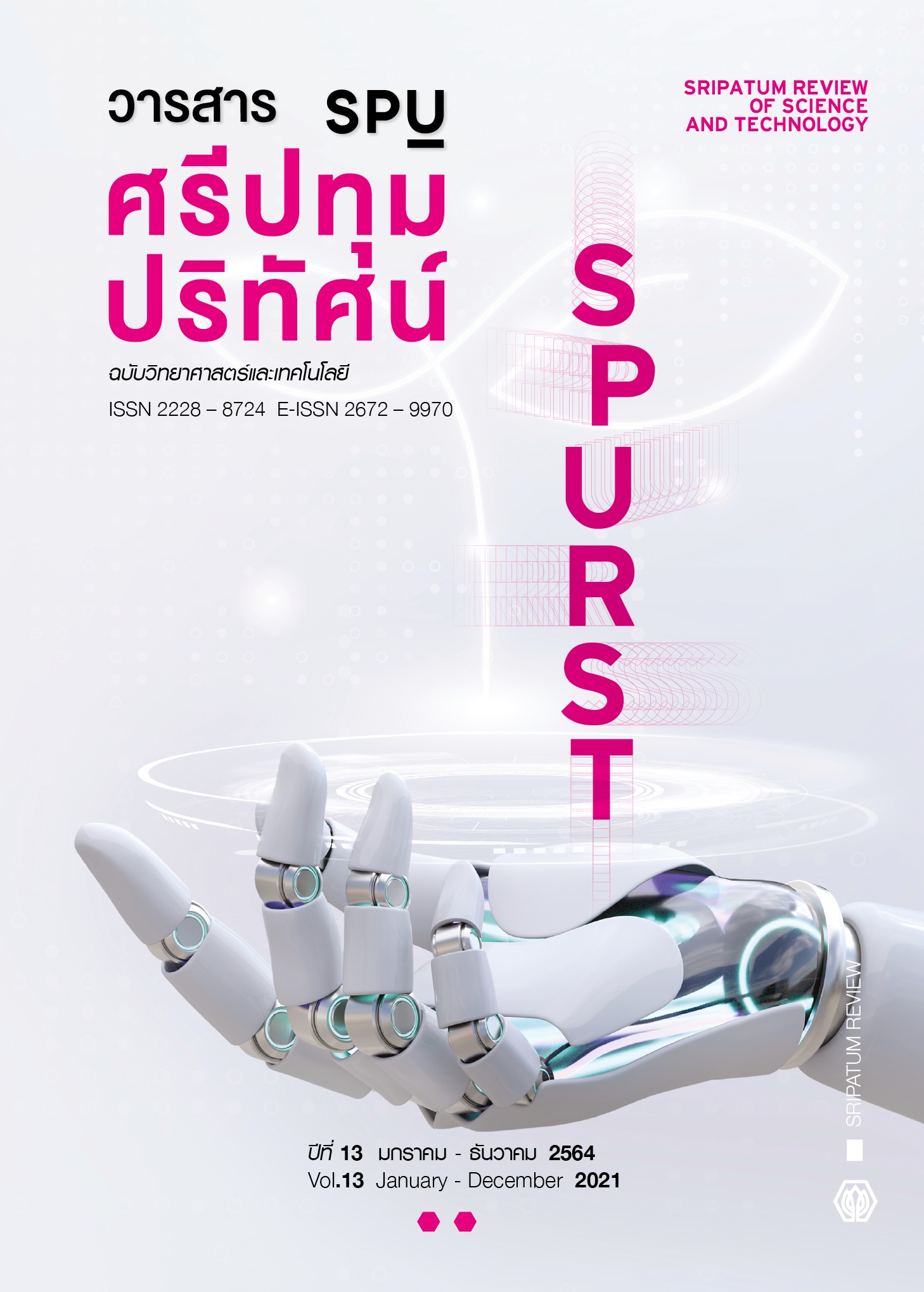The Expert System for Herbs Usage Based on Wisdom-Knowledge in Terms of Health Using Tree Classification Decision Techniques
Main Article Content
Abstract
The objective of this research was to develop an expert system for herbs usage based on health wisdom knowledge. The researchers used the participatory action research (PAR) process and the system development life cycle (SDLC) process. A structured interview form was used in the interviews of 96 purposively selected local wisdom villagers in 6 sub-districts of Khao Wong district, Kalasin province to obtain the body of knowledge on the uses of herbs to treat diseases based on health wisdom knowledge. Then, we developed the expert system for the use of herbs to treat diseases based on health wisdom knowledge of the local wisdom villagers with the application of the tree classification decision techniques. The research results showed that there were 115 types of herbs used in the community. The developed system could provide answers and advices on the use of herbs to treat diseases based on health wisdom knowledge of local wisdom villagers, by creating a model using the C4.5 algorithm with the accuracy of 88 %, and the result of the system’s quality evaluation by experts indicated that the system’s quality was at the high level.
Article Details
References
Chansakul, S. (2018). Data Mining Techniques for Nursing Data Analysis. EAU Heritage Journal Science and Technology, 2(12), 83-96. (in Thai)
Cheewaprakobkit, P. (2013). Study of Factors Analysis Affecting Academic Achievement of Undergraduate Students in International Program, 1-5. The Proceedings of the International MultiConference of Engineers and Computer Scientists 2013 (IMECS 2013), March 13 - 15, 2013, Hong Kong, 1-5.
Daniel, T. (2005). Discovering Knowledge in Data. New York, United States: John Wiley & Sons.
Kaminski, B., Jakubczyk, M. and Szufel, P. (2017). A framework for sensitivity analysis of decision trees. Central European Journal of Operations Research, 26(1), 135–159.
Kohavi, R. (1995). A study of crossvalidation and bootstrap for accuracy estimation and model selection. The Proceedings of the Fourteenth International joint conference on Artificial Intelligence, Montreal, Canada, 20-25 August 1995, 1137-1143.
Treerungroj, M. (2017). Machine Learning & Supervised Learning with basic scikit-learn. [Online]. Retrieved November, 2019 from https://medium.com/@m.treerungroj/machine-learning-supervised-learning-with-basic-scikit-learn-part1-99b8b2327c9. (in Thai)
Muntham, D. and Ingsrisawang, L. (2010). An Application of Decision Tree Algorithms for Diagnosis of the Respiratory System: A Case Study of Pranakorn Sri Ayudthaya Hospital. Journal of Health Systems Research, 4(1), 73-81. (in Thai)
Quinlan, J. (1993). C4.5: Programs for Machine Learning. San Francisco, USA: Morgan Kaufmann Publishers.
Srichaiwong, C., Trakulsuk, P. and Boonlue, S. (2014). Decision Support Systems For Longan Leaf Disease Diagnosis with Decision Tree Technical. Veridian E-Journal Science and Technology Silpakorn University, 1(6), 1-14. (in Thai)
Sriwiboon, N. 2016. A comparative efficiency of data mining algorithms for analysis of factors affecting the cancer. SNRU Journal of Science and Technology, 8(3), 344–352. (in Thai)
Sumungkaset, A. and Nantasri, C. (2019). Folk Medicine Databases System of NaMon District Kalasin Province. Koch Cha Sarn Journal of Science, 40(2), 74-87. (in Thai)
Tilmann, B. (2007). Programs for Machine Learning. San Francisco, USA: Morgan Kaufmann Publishers.
Tubtong, A., Suksut, P. and Singha, S. (2014). The knowledge management of Thai wisdom on health in primary care service system and community health care. Bangkok: Health Systems Research Institute (HSRI), National Library of Thailand. (in Thai)


